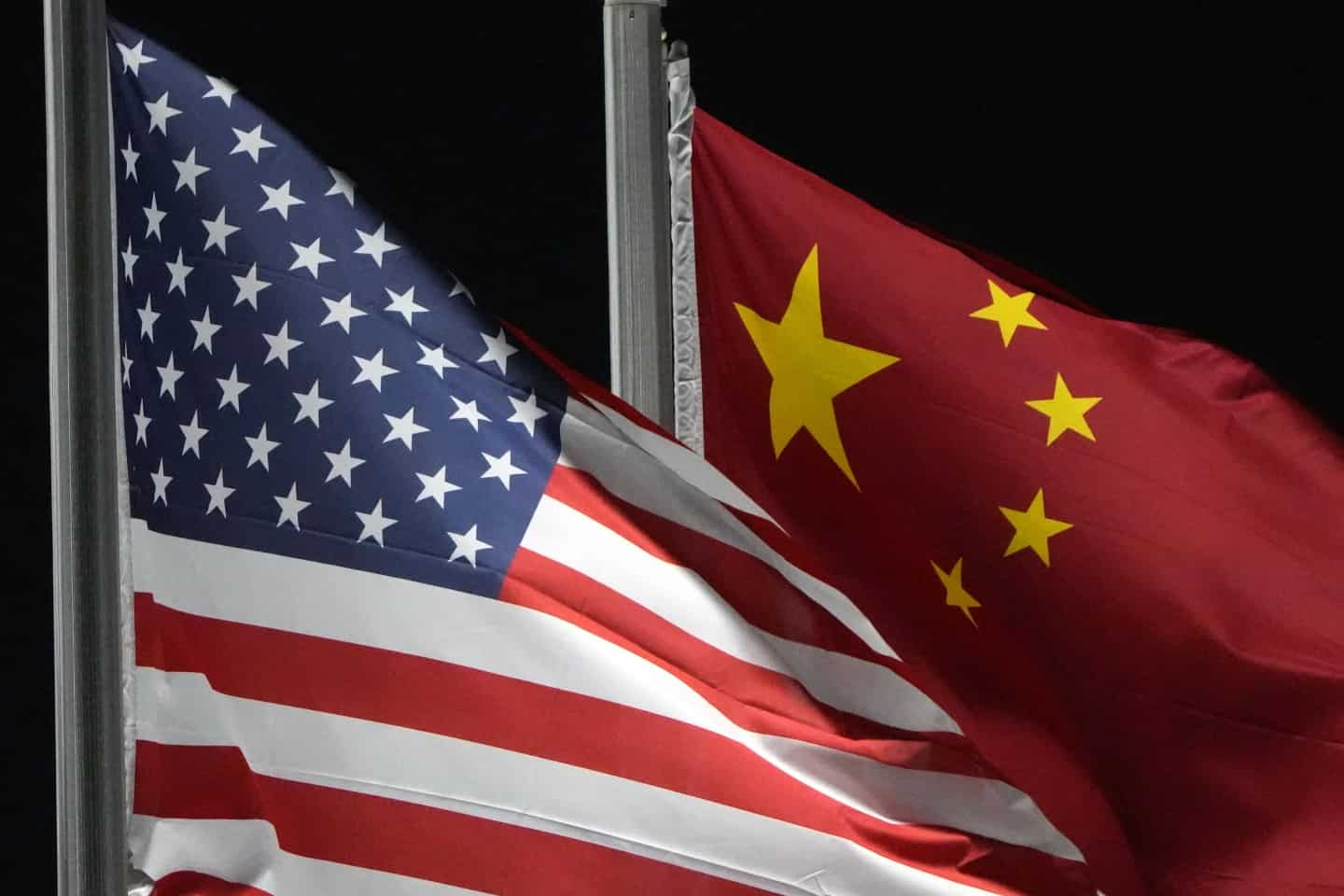China on Thursday firmly denied any ongoing negotiations with the United States over tariffs, pushing back against US President Donald Trump’s suggestion that progress was being made in easing the trade deadlock. The Chinese Foreign Ministry likened the idea of active talks to “trying to catch the wind,” signalling no immediate thaw in the tense economic standoff.
This came days after Trump claimed that discussions with China were going “fine” and hinted that tariffs on Chinese goods—currently at 145 per cent—would “substantially” reduce. “For all I know, China and the US are not having any consultation or negotiation on tariffs, still less reaching a deal,” said Guo Jiakun, spokesperson for China’s Foreign Ministry, news agency AP reported.
China: Respect and equality must come first
He Yadong, spokesperson for the Commerce Ministry, reiterated China’s long-standing stance that it remains open to dialogue—but only under “mutual respect and in an equal manner.” He said any talk of progress was “groundless” and had “no factual basis.”
Also Read:US tariffs on Chinese imports: Domestic toy makers keen to leverage ‘golden opportunity’
Despite this, President Trump, when asked about China’s denial, told reporters, “They had a meeting this morning,” before adding ambiguously, “it doesn’t matter who they is.”
US sends mixed signals as tariff pressure mounts
Back home, the Trump administration sent out contradictory messages throughout Thursday. While Treasury Secretary Scott Bessent described a “very successful bilateral meeting” with South Korea and hinted at a potential agreement next week, Trump doubled down on his hardline approach.
“It’s physically impossible to negotiate with every country. At some point, we’ll just set prices for deals,” he said, adding that countries treating the US unfairly would face “higher tariffs.”
Also Read:Trump says he’s in ‘no rush’ for trade deals, calls tariffs a source of US wealth
China digs in, wants all tariffs removed
Trump had earlier slapped 145 per cent tariffs on Chinese imports, prompting Beijing to retaliate with 125 per cent tariffs on US goods. Unlike other countries given a ninety-day pause, China received no such relief. Instead, it responded by hiking its own tariffs, restricting exports of rare earth minerals, and filing multiple complaints against the US at the World Trade Organisation.
Beijing insists that any talks must include a full rollback of all tariffs. “The unilateral tariff increase measures were initiated by the United States,” said He. “If the US really wants to solve the problem, it should completely cancel all unilateral tariffs and find a resolution through equal dialogue.”
Still, Trump struck a more conciliatory note on Tuesday, saying he wouldn’t play hardball with President Xi Jinping. “We’re going to live together very happily and ideally work together,” he added.
(With inputs from AP)
Anurag Dhole is a seasoned journalist and content writer with a passion for delivering timely, accurate, and engaging stories. With over 8 years of experience in digital media, she covers a wide range of topics—from breaking news and politics to business insights and cultural trends. Jane's writing style blends clarity with depth, aiming to inform and inspire readers in a fast-paced media landscape. When she’s not chasing stories, she’s likely reading investigative features or exploring local cafés for her next writing spot.






